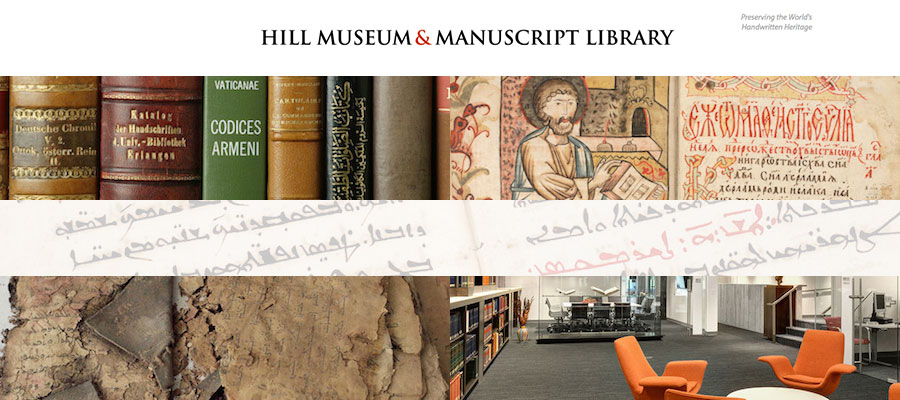HMML / Dumbarton Oaks Syriac and Armenian Summer School, Hill Museum & Manuscript Library, July 2–August 3, 2018
Building on two summers of success, Dumbarton Oaks in collaboration with the Hill Museum & Manuscript Library (HMML) announces an intensive five-week course introducing Syriac language and paleography in summer of 2018. The program, sponsored and funded by Dumbarton Oaks, will be hosted at HMML. The summer school will run from July 2 to August 3, 2018 (arrival on July 1, departure August 4). The audience is doctoral students or recent PhDs who can demonstrate a need to learn Syriac for their research.
Approximately ten places will be available in the course. Costs for tuition, housing, and meals will be covered by Dumbarton Oaks. The selected participants will be responsible for their own travel costs to and from Saint John’s University (nearest airport: Minneapolis-St Paul).
The program welcomes international applicants but does not sponsor J visas.
Course Offerings
The Summer School will consist of morning and afternoon sessions Monday-Friday, complemented by guest lectures and other learning opportunities, as well as social events and enjoyment of the beautiful 2700-acre campus with woods, lakes, and notable architecture.
Prior familiarity with basic Syriac grammar is not a prerequisite but some preparation will be required before arrival, as directed by the instructors. The courses will include an introduction to paleography and to the study and use of manuscripts, especially those now available in the vHMML Reading Room from HMML’s vast collection of digitized Syriac manuscripts.
Following this intensive course, students will be fully equipped to continue reading on their own or to enter reading courses at other institutions.
Faculty
Alberto Rigolio, Princeton University
Jeffrey Wickes, Saint Louis University
Requirements for Admission
Applicants must be either enrolled doctoral students in good standing with a demonstrated need to learn Syriac for their research, or recent PhDs, including early-career faculty members, who can demonstrate the value of Syriac for their teaching and research. A basic familiarity with the Syriac writing systems and principal script-forms will be presumed upon arrival. Those accepted into the program will be informed about resources to help them in their preparation.
